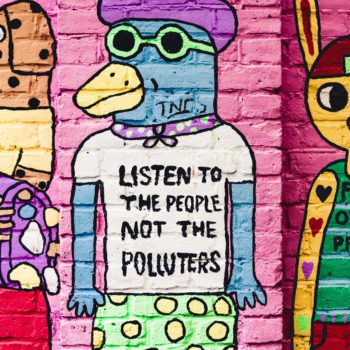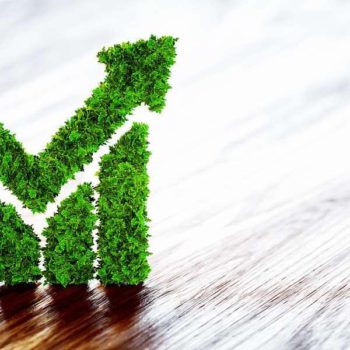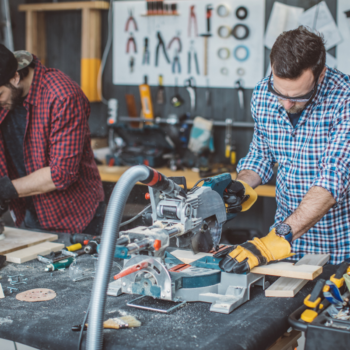Aluminum can suppliers are experiencing a serious shortage, and you may soon struggle to find your favorite beer on the shelf.
But there is something good to be said about the aluminum can shortage. Remember in our newsletter last week when we broke down the number of cans produced in China every month? Well here’s why we did that.
Busy? Try the speed read.
What to know American aluminum can suppliers are experiencing a shortage.
Unpredictable consumer behavior and increased demand led suppliers to miss production levels and now beverage brands must scramble to compete for what’s left.
Why it matters The overall shift from single-use plastics has also led major drink makers to shift from plastic bottles to aluminum cans.
And while aluminum cans don’t last in the atmosphere forever, they still can have damning effects on waste management.
We are living in a world where China doesn’t want our trash anymore, and recyclable aluminum cans are more of a band-aid solution of a larger problem.
The silver lining Consider it a stress test.
With real-world examples about the fragility of our global system in place, we can now create applicable solutions outside the classroom.
Key recommendations for the shortage
- Brands can adapt by providing bulk alternatives to the traditional 12 oz can.
- Brands can also educate consumers on the label about the importance of maintaining a can’s shape for recycling purposes. I was a beer can crusher in college, and I had no clue that crushing a beer can would make it near impossible to recycle.
- To consumer, do you love beer? Me too. Go to your local brewery, and fill up a growler. You can fill up a lot of beer for a great price, straight from the tap. You can support a local business, and the beer tastes fantastic if you pick the right brewer. There are more quality independent breweries out there today than ever before.
Dig deeper → 1 min
With the cult-like sensation of White Claw and disruptions from COVID, aluminum can suppliers must now scramble to keep up with an increased demand for production.
Beer that would normally go into a keg at a bar or restaurant are now being sold by the can, and businesses are still adjusting to figure out how much they need of what, when. Add that to all of the other disruptions in the beverage industry with missed projections and the move away from single-use plastic, and you have a shortage on your hands.
“Prior to COVID, 2020 was already poised for notable can growth across a variety of categories,” according to Ball strategic communications director Scott McCarty.
“For instance, hard seltzers have experienced explosive growth as a category and specifically in cans. Soft drinks and the still and sparkling water categories have seen it, too, with marketers shifting their packaging mix toward cans and away from single-use plastics.”
McCarty referred to ‘marketers’ as the cause-culprit for more cans. It makes sense. Because this is an issue of marketing.
From plastic to aluminum
Beverage brands want the appearance of greener practices, and if that means no plastic today and aluminum tomorrow, they are improving their public image. Which is fine, that is how we should expect corporations to behave. Businesses must follow the market trends, like less plastic, and let the government play its necessary role as the proponent of public good.
Evidently, marketers understand the importance of moving away from single-use plastics. But what exactly are we using as the replacement? The main environmental impact from aluminum stems from land, air, and water use.
While aluminum is an abundant resource, it is an arduous process to extract, requiring a lot of heavy machinery. With reduced consumption, improved recycling processes, and a little bit of innovation, a world of aluminum cans is much more manageable than a world of plastic.
The overall shift from single-use plastics has also led major drink makers to shift from plastic bottles to aluminum cans. And while aluminum cans don’t last in the atmosphere forever, they still can have damning effects on waste management.
We are living in a world where China doesn’t want our trash anymore, and recyclable aluminum cans are more of a band-aid solution of a larger problem.
Who could factor in the increased demand for aluminum specialty cans (those tall and skinny 12 oz. ones in your favorite seltzer) and the standard Bud Light style can stemming from a major shift in consumer behavior?
Well here we are.
The silver lining
Consider it a stress test.
Without a true, real-world example of the fragility of our global supply chain, running out of something as simple as a can of beer would remain as a statistics problem in a classroom. When the impact is long-term and difficult to understand in the short-term, humans have a hard time dedicating the necessary time and resources to create proper solutions.
The can shortage, hopefully, will act as a wake-up call for supply-chain professionals to act fast on dealing with a paradoxically powerful but fragile globalized economy. We wrote an in-depth piece of how humans react to things like COVID and climate change a few months back.
In that article, we basically concluded that it takes a lot of work to coordinate global action similar to our response to the pandemic. Facing these supply chain disruptions head on is an important step for progress.
Let the aluminum can shortage, coin shortage, food shortage, and other scarcities remind us of 1) the importance of self-reliance and 2) the need to start implementing real-world solutions for supply chain problems.
Key recommendations
-
Find alternatives
-
Brands can adapt by providing bulk alternatives to the traditional 12 oz can.
-
-
Educate consumers
-
Brands can also educate consumers on the label about the importance of maintaining a can’s shape for recycling purposes. I was a beer can crusher in college, and I had no clue that crushing a beer can would make it near impossible to recycle.
-
-
Buy in bulk
-
- To consumers, do you love beer? Me too. Go to your local brewery, and fill up a growler. You can get a lot of beer for a great price, straight from the tap. You can support a local business, and the beer tastes fantastic if you pick the right brewer. There are more quality independent breweries out there today than ever before.
What do you think about the aluminum can shortage? Comment your thoughts below.













No Comments